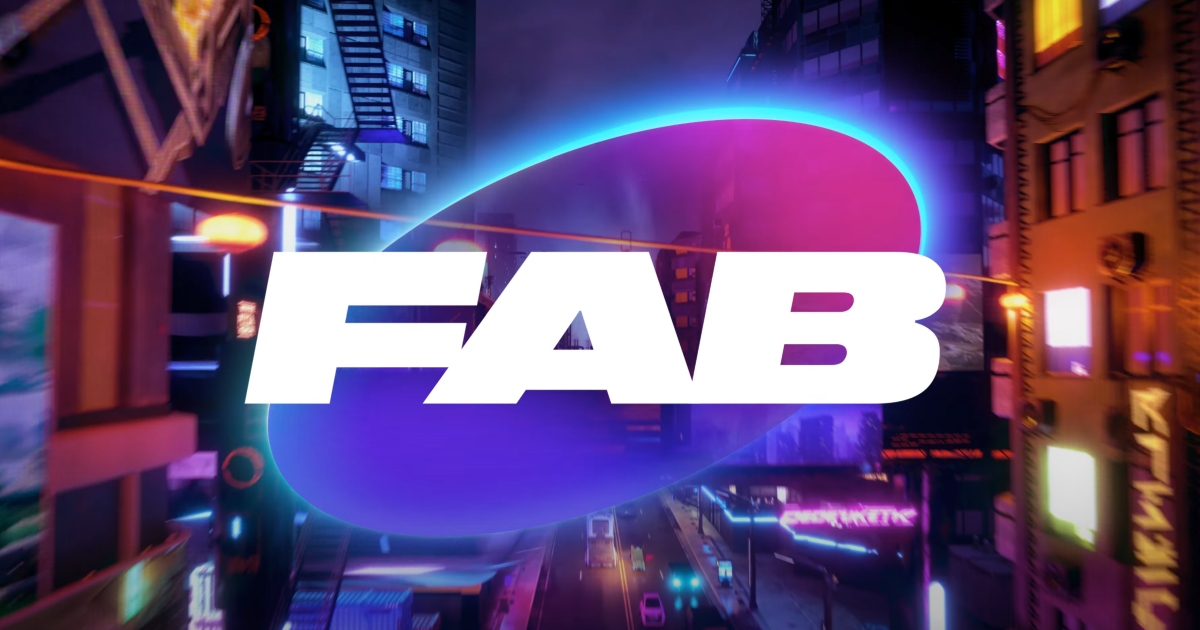Epic Games has launched a successor to the Unreal Engine Marketplace and its other storefronts. The new unified marketplace will allow developers to sell and download assets for various engines and content creation tools.

What is Fab?
- As Epic Games explained in a blog post, Fab is a one-stop marketplace for buying, selling, and sharing digital assets.
- It will combine the Unreal Engine Marketplace, Sketchfab Store, and Quixel. In 2025, Epic will add integration with the ArtStation Marketplace.
- Fab currently supports content for Unreal Engine, Unreal Engine for Fortnite (UEFN), and even Epic’s rival engine Unity. In the future, the company plans to allow assets compatible with other tools like Godot, as well as add file formats for Roblox and Minecraft.
- The new marketplace also has a real-time 3D viewer to check out assets before purchasing them. Customers will also be able to see a detailed description of each product, including whether it was created using generative AI.
- Fab publishers will receive 100% of revenue on sales of Fab Standard-licensed products through the end of 2024.
- In 2025, Epic Games plans to make a cross-section of its Megascans library free to all users regardless of which engine or platform they are using. This pack will include more than 1,500 assets.
Controversy over library migration and preservation
- The launch of Fab raised concerns among developers. Although Epic Games allowed creators to migrate their products from other marketplaces, the community was still confused about the transparency of the process.
- Epic VP and general manager for creator marketplaces Bill Clifford told GamesIndustry.biz that the company has no plans to delete anyone’s content, adding that “nothing is going to change on Sketchfab today outside of the store.”
- There are some license types and file formats that cannot be migrated from the Sketchfab Store to Fab, but Epic Games plans to add new ones over time.
- Another issue is that Sketchfab has more than 100k assets from historians and cultural heritage societies. Clifford noted that the company has reached out to the cultural heritage community on the platform, ensuring that their models will remain available for discovery and download.
- “Preserving someone’s work is paramount to us,” he said, adding that the Fab marketplace simply serves the market’s for a “single destination where you can go to discover, share, buy, and sell content.”
